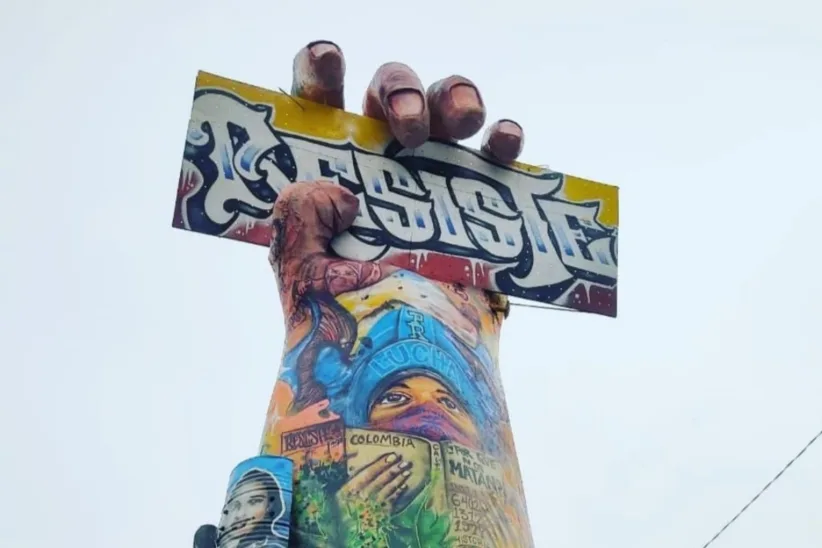Two months of national strike and protests in Colombia
The almost two months long national strike, with numerous blockades and protests, seem to have changed the public opinion in Colombia.

The almost two months long national strike, with numerous blockades and protests, seem to have changed the public opinion in Colombia. Through decades, the authorities have stigmatized popular and peaceful mobilisations by accusing them of being linked to, and led by, violent groups. However, during this national strike public opinion did not accept the government’s perception of the protest, nor the brutal reaction from government, police and military forces. Opinion polls show that 74% supported the strike and protests, and that 77% of the population has a negative opinion about president Duque.
All NPA’s partners participated actively in the National Strike. It started on April 28th, in response to the introduction of a regressive tax package, which would have added a 19 % tax on a range of basic goods and services, such as water, electricity, natural gas, gasoline, and basic staples like flour, grains, pasta, salt, milk, and coffee. The Strike was called for by the National Strike Committee, an alliance of all the mayor unions and some social organisations. Three NPA partners are active in the National Strike Committee; Peoples’ Congress, National Agrarian Coordinator (CNA) and National Association of Peasant Reserve Zones (ANZORC).
The protests received immense support from many people, organized and unorganized, in both cities, particularly Cali, Bogotá, and Medellín, and in rural areas. A wide variety of sectors mobilised, both in a social and a geographical sense, resulting in great diversity in demands, ranging from specific local to common national, and to some tensions between sectors on strategies and priorities. The protests went on for almost two months, but began diluting after a call from the National Strike Committee in mid-June.
The Strike is considered to be the largest in the last five decades. Along with the enormous popular support to the strike followed an unprecedented State repression, especially in the city of Cali. National NGOs (Temblores and Indepaz) account for 75 deaths caused by State forces or paramilitary agents, over 340 people disappeared, 25 cases of sexual violence, and over 1600 people arbitrarily incarcerated.
The human rights violations drew international attention and rejection from many governments and media, civil society and the United Nations. The Interamerican Commission of Human Rights, ICHR, visited Colombia in early June to gather information and testimonies from many sectors to prepare a documented report on the situation.
NPA strongly request the Norwegian authorities to follow up the findings in this report in their dialogues with Colombian authorities and in the UN Security Council.
